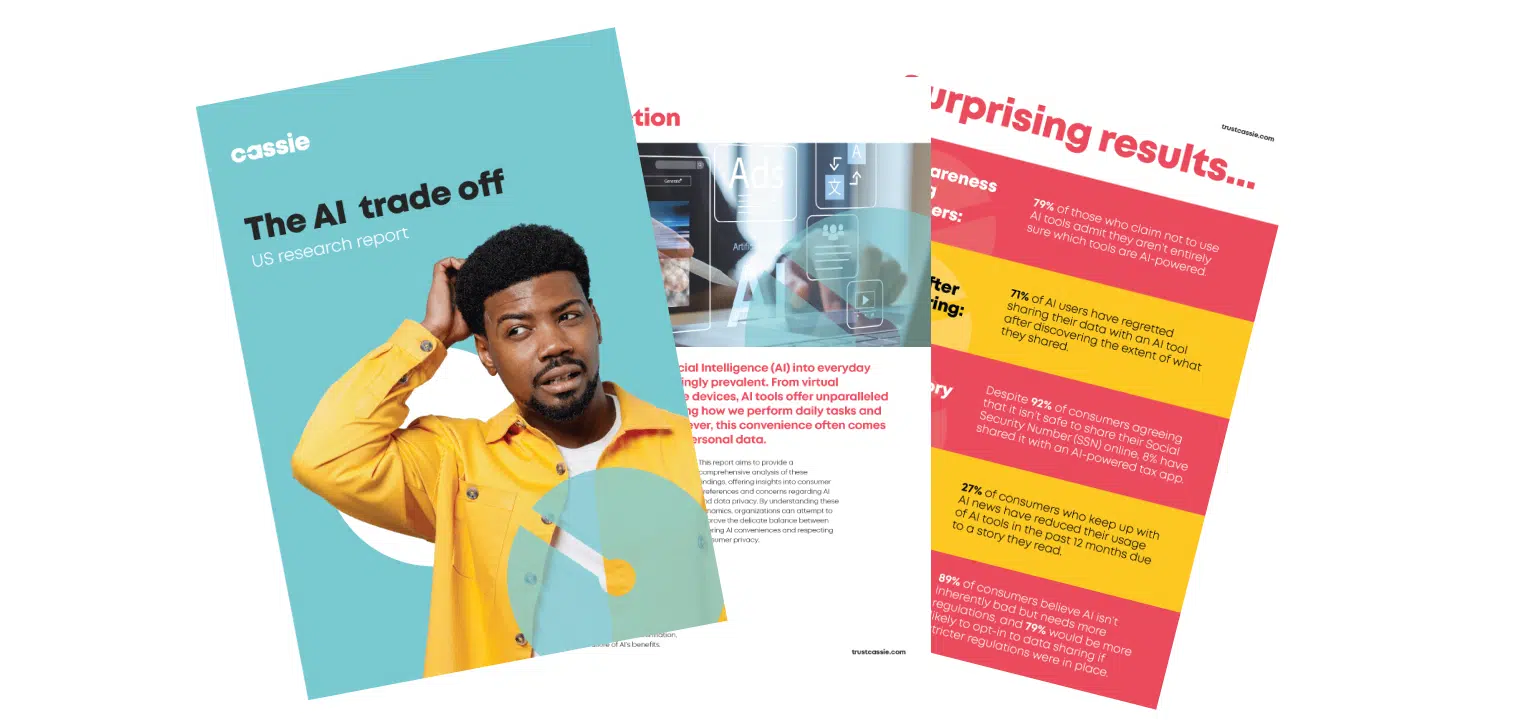Not an AI expert? You’re not alone
Posted: October 28, 2024
If someone asked you to explain how AI works in 30 seconds or less, could you do it? Are you able to describe how ChatGPT turns inputs into outputs? Can you name any of its data sources?
If you answered “no” to any of these questions, you’re in good company.
Half of consumers surveyed in our AI Trade Off report admitted they don’t know how AI works, even with the vast majority (86%) using it regularly for school, work, or in their personal lives. And with another 52% saying they aren’t confident in their ability to distinguish between tools that are powered by AI and those that aren’t, it’s clear that much of the population feels largely left in the dark.
Let’s explore common perceptions of AI revealed by the report and what brands can do to quell consumer anxieties.
Big Brother is watching
Most people aren’t keen on having their data collected by a technology they don’t understand. Uncertainty around what data AI actually collects only contributes to their confusion:
- 89% believe AI tools collect data on their search history
- 87% believe AI tools collect their location data
- 76% believe AI tools collect detailed behavioral patterns
While the majority know that AI collects data to train models, 85% are still unsure how much is collected for this purpose. This leaves four in five users feeling uncomfortable with the thought of being constantly monitored.
But discomfort isn’t stopping them from using AI. Even though 97% say they’re cautious about who they share financial information with, for example, 23% said they’ve used AI-powered financial tools. The fact of the matter is, consumers are overlooking their own privacy concerns for the convenience and insights offered by AI.
Brands therefore have a responsibility to demonstrate that their users’ trust is not misplaced.
Promoting transparency
Nearly three in four consumers (74%) say they don’t view AI companies and tools as transparent. They crave greater visibility into how the technology works and what data it collects. Many are taking it upon themselves to learn more: 39% told Cassie they keep up with AI news and developments. This leads to more discerning users – 44% of these respondents said a story they read about AI made them more selective about the tools they use over the past 12 months.
But with 79% of those who said they don’t use AI confessing they aren’t entirely sure which tools count as “AI-powered,” there is a massive opportunity for brands to close the knowledge gap.
Start by asking yourself: Does my business act as a resource beyond the products and services we offer? Can we educate our customers on AI topics and trends relevant to our industry? How can we demonstrate our value in such a way that customers walk away feeling like they’ve learned something?


